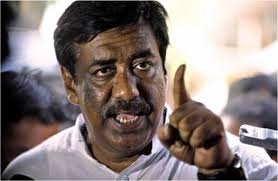The last seven days have presented quite the rollercoaster ride, in terms of relations between the government and the press. It started with dismay and disgust at the vile opinion about journalists held by a current member of parliament who – given his reputation as a “godfather” of crime in his locality – is clearly too close to the country’s top leadership, for the comfort of honest, law-abiding citizens.
It should hardly have come as a surprise though, and let’s not forget, drawing praise as opposed to the opprobrium of individuals like Shamim Osman is when journalists and those who employ them should start getting worried. When the man known for nurturing crime lords like Nur Hossain, to go with his own extensive record of criminality, starts hating on you, it means you’re probably doing something right. Despite the visible disturbance it causes to some, journalists in Bangladesh today, more than ever before, endeavour to speak truth to power – the highest calling of their profession. And although the twin scourges of self-censorship and government clampdowns continue to impede progress toward a truly free press, there can be no doubting the situation is markedly different today from even 10 years ago. At a time when many of our institutions for upholding democracy are in decline, this is one of the few left with the power to nourish it.
Which is something that Suranjit Sengupta, the seasoned yet somewhat out-of-favour member of the Awami League’s presidium council, seems to appreciate. Yet it is a sign of the disfavour within the government of such views, that he now finds himself in the quixotic position of minister without portfolio – slightly akin to being part of the government with no remit to govern. Be that as it may, he at least will see the sheer folly that came to light later in the week, in that the government is considering the restoration of an archaic and draconian provision granted by the Printing Presses and Publications Act, 1973, whereby district magistrates held the power to cancel a newspaper’s declaration, in effect to close it down, on grounds of “publishing anti-state news”, or “news hurting religious sentiments”.
It is as preposterous as it sounds. Given that Information Minister Hasanul Huq Inu, one day after championing the passage of a welfare trust bill for journalists, professed to having no knowledge of this, we can only conclude it is only an element within the government that is hatching what would be the most regressive assault possible on Bangladesh’s already ailing democracy. These are the elements that knowingly or not, seek to pull Bangladesh back from the path of true progress. These are the elements that depend on people being ignorant, to maintain their order of society, and to hell with democracy. We must always oppose them, and if they have unkind words for us, we must commend ourselves on a job well-done.
Source: UNB.com.bd










